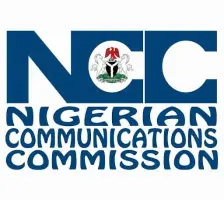The Nigerian Communications Commission (NCC) has issued a directive requiring all mobile network operators in Nigeria, including MTN and GLO, to promptly inform customers about major service disruptions on their networks.
According to a statement released on Sunday by NCC's acting spokesperson, Nnenna Ukoha, operators must now provide details about the causes of service interruptions, affected areas, and estimated restoration time.
"All Nigerian MNOs are to inform their customers of the cause(s) of the service interruption and the area(s) affected by the service interruption/outage, as well as the time that would be taken to restore service," the statement read.
The Commission further mandated that consumers must receive advance notice at least one week before any planned service outages. This new "Directive on Reportage of Major Network Outages by Mobile Network Operators" forms part of NCC's efforts to enhance the quality of experience for telecom consumers and ensure timely resolution of network issues.
In cases where major network outages persist for more than 24 hours, the directive requires operators to provide proportional compensation to affected customers. This may include extending service validity periods in accordance with the provisions of the Consumer Code of Practice Regulations.
Categories of Major Outages
The NCC has identified three types of major outages that fall under this directive:
1. Network operational conditions such as fibre cuts due to construction issues, theft, vandalism, or force majeure that impacts 5% or more of an operator's subscriber base or five or more local government areas.
2. Unplanned outages or complete isolation of network resources in 100 or more sites (or 5% of total sites, whichever is less) or one cluster lasting 30 minutes or more.
3. Any form of outage that degrades network quality in the top 10 states based on traffic volume as specified by the Commission.
To enhance transparency, the Commission has launched a Major Outage Reporting Portal accessible to the public through the NCC's website (www.ncc.gov.ng). The portal will not only provide information about outages but also disclose the identity of parties responsible for any disruptions.
Promoting Accountability in Telecommunications
Engr. Edoyemi Ogor, Director of Technical Standards and Network Integrity at the NCC, explained that the Commission had been testing the reporting process and portal with operators for several months before issuing the directive.
"By providing consumers and stakeholders in the telecommunications industry with timely and transparent information on network outages, we are entrenching a culture of accountability and transparency. This approach also ensures that culprits are held responsible for sabotage to telecommunications infrastructure," Ogor stated.
The initiative aligns with President Bola Ahmed Tinubu's Executive Order designating telecommunications infrastructure as Critical National Information Infrastructure (CNII). This classification emphasizes the need to protect these assets given their importance to national security, economic stability, and the daily lives of Nigerians.
The directive comes amid increasing complaints from Nigerian telecom subscribers about service disruptions and poor network quality across various providers. This regulatory move is expected to improve service delivery and hold operators more accountable to their customers.












